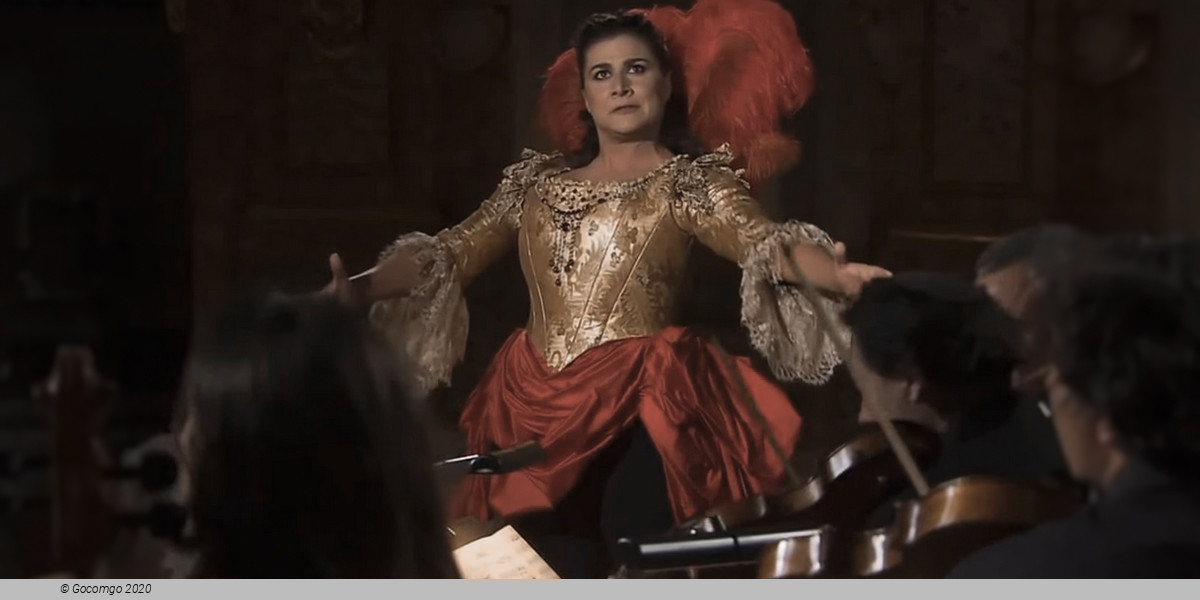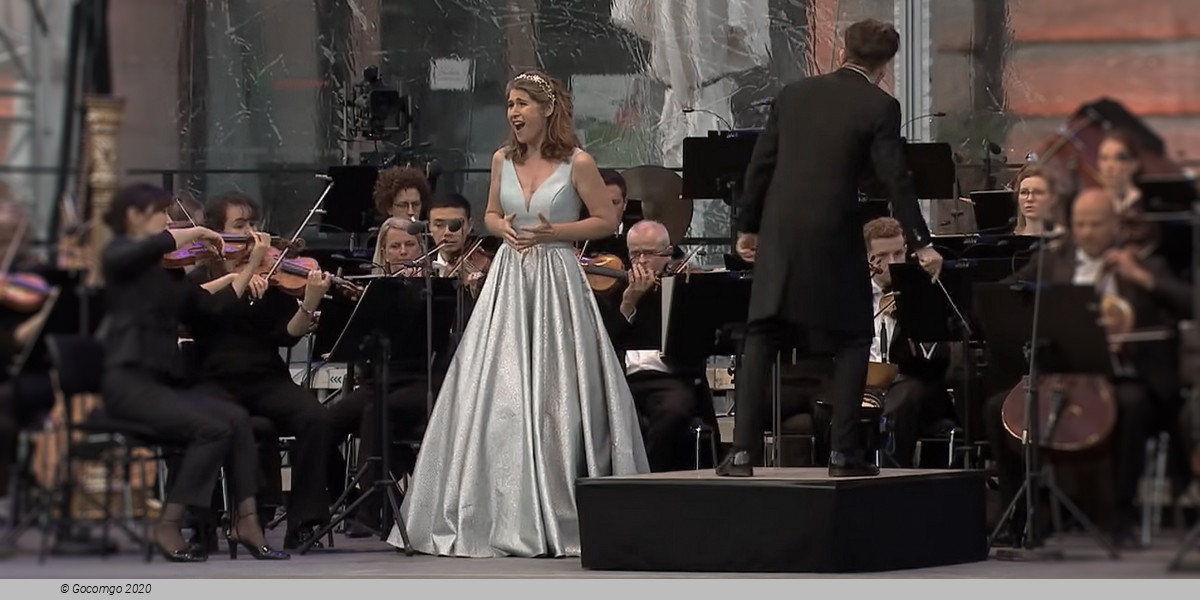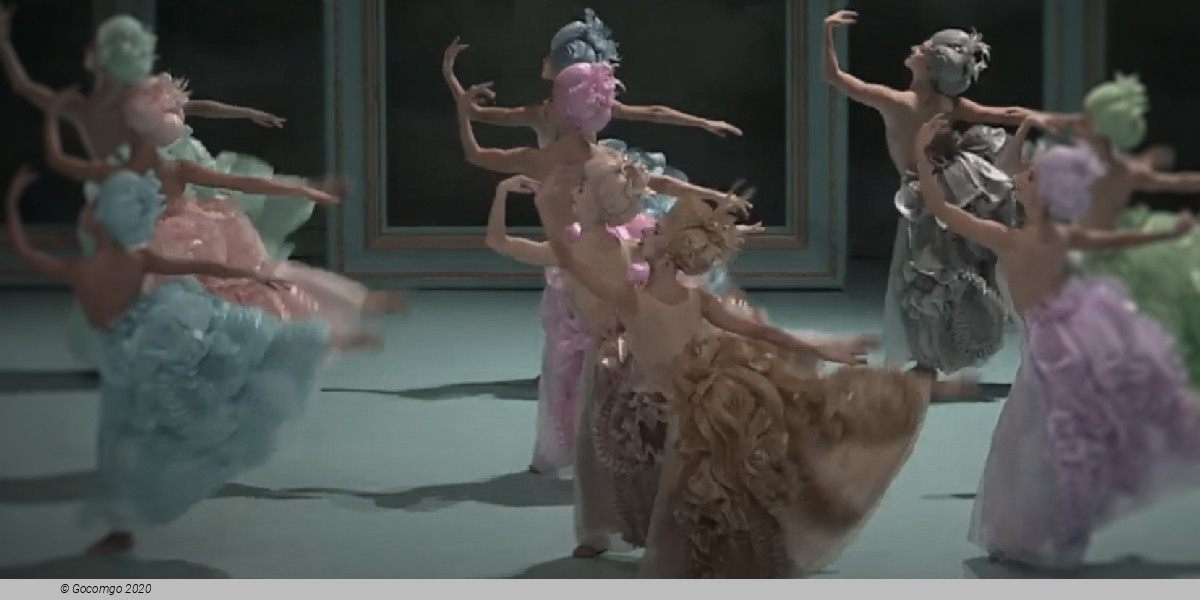Events11 results
About
Christoph Willibald (4 July 1714 – 15 November 1787) was a composer of Italian and French opera in the early classical period. Born in the Upper Palatinate and raised in Bohemia, both part of the Holy Roman Empire, he gained prominence at the Habsburg court at Vienna. There he brought about the practical reform of opera's dramaturgical practices for which many intellectuals had been campaigning. With a series of radical new works in the 1760s, among them Orfeo ed Euridice and Alceste, he broke the stranglehold that Metastasian opera seria had enjoyed for much of the century. Gluck introduced more drama by using simpler recitative and cutting the usually long da capo aria. His later operas have half the length of a typical baroque opera.
The strong influence of French opera encouraged Gluck to move to Paris in November 1773. Fusing the traditions of Italian opera and the French (with rich chorus) into a unique synthesis, Gluck wrote eight operas for the Parisian stage. Iphigénie en Tauride was a great success and is generally acknowledged to be his finest work. Though he was extremely popular and widely credited with bringing about a revolution in French opera, Gluck's mastery of the Parisian operatic scene was never absolute, and after the poor reception of his Echo et Narcisse, he left Paris in disgust and returned to Vienna to live out the remainder of his life.
Ancestry and early years
Gluck's earliest known ancestor is his great-grandfather, Simon Gluckh von Rockenzahn, whose name is recorded in the marriage contract (1672) of his son, the forester Johann (Hans) Adam Gluck (c. 1649–1722). 'Rockenzahn' is believed to be Rokycany, located in the central part of western Bohemia (about 70 km southwest of Prague and 16 km east of Pilsen). The family name Gluck (also spelled Gluckh, Klugh, Kluch, etc.) likely comes from the Czech word for boy (kluk). In its various spellings, it is repeatedly found in the records of Rokycany. Around 1675 Hans Adam moved to Neustadt an der Waldnaab in the service of Prince Ferdinand August von Lobkowitz, who possessed extensive landholdings in Bohemia as well as the county of Störnstein-Neustadt in the Upper Palatinate.
Gluck's father, Alexander, was born in Neustadt an der Waldnaab on 28 October 1683, one of four sons of Hans Adam Gluck who became foresters or gamekeepers. Alexander served in a contingent of about 50 soldiers under Philipp Hyazinth von Lobkowitz, the son of Ferdinand August von Lobkowitz, during the War of Spanish Succession, and, according to Gluck family tradition, rose to the level of gunbearer to the great general of the imperial forces, Eugene of Savoy. In 1711 Alexander settled outside Berching as a forester and hunter in the service of the monastery Seligenporten, Plankstetten Abbey, and the mayors of Neumarkt in der Oberpfalz. He took the vacant position of hunter in Erasbach in 1711 or 1712 (his predecessor had been found shot in the forest).
About Gluck's mother, Maria Walburga, almost nothing is known, including her surname, but she probably grew up in the same area as she was named after Saint Walburga, the sister of Saint Willibald, the first bishop of nearby Eichstätt. The couple probably married around 1711. In 1713 Alexander built a house in Erasbach and by 12 September had taken possession of it. His son Christoph was baptized Christophorus Willibaldus on 4 July 1714 in the village of Weidenwang, a parish that at that time also included Erasbach.
In the same year the Treaty of Rastatt and the Treaty of Baden ended the War of Spanish Succession and brought Erasbach under Bavarian control. Gluck's father had to reapply to retain his position and received no salary until after 1715, when he began receiving 20 Gulden. He obtained additional employment in the vicinity of Weidenwang in 1715 as a forester in the service of Seligenporten Monastery, and after 1715, also with Plankstetten Abbey. In 1716 Alexander Gluck was cited for poor performance and warned he might be terminated. He sold his house in August 1717 and voluntarily left Erasbach near the end of September to take up employment as head forester in Reichstadt, serving the Duchess of Tuscany, the wealthy Anna Maria Franziska of Saxe-Lauenburg, since 1708 separated from her husband Gian Gastone de' Medici, the last duke of Tuscany.
On 1 April 1722 Alexander Gluck took a position as forest-master under Count Philipp Joseph von Kinsky in Böhmisch Kamnitz, where Kinsky had increased his domains. The family moved to the forester's house in nearby Oberkreibitz.
In 1727 Alexander moved with his family to Eisenberg (Jezeří in Horní Jiřetín) to take his final post, head forester to Prince Philipp Hyazinth von Lobkowitz. It is not sure if Christoph was sent to the Jesuit college in Komotau, 20 km southwest.
The Alsatian painter Johann Christian von Mannlich relates in his memoirs, published in 1810, that Gluck told him about his early life in 1774. He quotes Gluck as saying:
"My father was forest master at N... in Bohemia and he planned that eventually I should succeed him. In my homeland everyone is musical; music is taught in the schools, and in the tiniest villages the peasants sing and play different instruments during High Mass in their churches. As I was passionate about the art, I made rapid progress. I played several instruments and the schoolmaster, singling me out from the other pupils, gave me lessons at his house when he was off duty. I no longer thought and dreamt of anything but music; the art of forestry was neglected."
In 1727 or 1728, when Gluck was 13 or 14, he went to Prague. A childhood flight from home to Vienna is included in several contemporary accounts of Gluck's life, including Mannlich's, but some scholars have cast doubt on Gluck's picturesque tales of earning food and shelter by his singing as he travelled. Most now feel it is more likely that the object of Gluck's travels was not Vienna but Prague. Gluck's German biographer Hans Joachim Moser claimed in 1940 to have found documents showing Gluck matriculated in logic and mathematics at the University of Prague in 1731. Gerhard and Renate Croll find this astonishing, and other biographers have been unable to find any documents supporting Moser's claim. At the time the University of Prague boasted a flourishing musical scene that included performances of both Italian opera and oratorio. Gluck sang and played violin and cello, and also the organ at Týn Church.
Gluck eventually left Prague without taking a degree, and vanishes from the historical record until 1737. Nevertheless, the memories of his family and indirect references to this period in later documents give good grounds for believing Gluck arrived in Vienna in 1734, where he likely was employed by the Lobkowitz family at their palace in the Minoritenplatz. Philipp Hyazinth Lobkowitz, Gluck's father's employer, died on 21 December 1734, and his successor, his brother Georg Christian Lobkowitz, is thought to have been Gluck's employer in Vienna from 1735 to 1736. Two operas with texts Gluck himself was later to set were performed during this period: Antonio Caldara's La clemenza di Tito (1734) and Le cinesi (1735). It is likely that the Lobkowitz family introduced Gluck to the Milanese nobleman Prince Antonio Maria Melzi, who engaged Gluck to become a player in his orchestra in Milan. The 65-year-old prince married the 16-year-old Maria Renata, Countess of Harrach, on 3 January 1737, and not long after returned with Gluck to Milan.
Question of Gluck's native language
According to the music historian Daniel Heartz, there has been considerable controversy concerning Gluck's native language. Gluck's protégé in Vienna, the Italian-born Antonio Salieri, wrote in his memoirs (translated into German by Ignaz von Mosel), that "Gluck, whose native tongue was Czech, expressed himself in German only with effort, and still more so in French and Italian." Salieri also mentions that Gluck mixed several languages when speaking: German, Italian and French, like Salieri himself. Gluck's first biographer, Anton Schmid, wrote that Gluck grew up in a German-speaking area, and that Gluck learned to speak Czech, but did not need it in Prague and in his later life. Heartz writes: "More devious manoeuvres have been attempted by Gluck's German biographers of this [the 20th] century, while the French ones have, without exception, taken Salieri at his word. His German biographer Max Arend objected that not a single letter written in Czech can be found, to which Jacques-Gabriel Prod'homme countered that "no letters written by Liszt in Hungarian were known either, but does this make him a German?" Hans Joachim Moser wanted a lyric work in Czech as proof. In fact, the music theorist Laurent Garcin, writing in 1770 (published 1772) before Gluck arrived in Paris, included Gluck in a list of several composers of Czech opéras-comiques (although such a work by Gluck has yet to be documented). A presentation by Irene Brandenburg classifying Gluck as a Bohemian composer was considered controversial by her German colleagues.
Italy
In 1737 Gluck arrived in Milan, and was introduced to Giovanni Battista Sammartini, who, according to Giuseppe Carpani, taught Gluck "practical knowledge of all the instruments". Apparently, this relationship lasted for several years. Sammartini was not, primarily, a composer of opera, his main output being of sacred music and symphonies, but Milan boasted a vibrant opera scene, and Gluck soon formed an association with one of the city's up-and-coming opera houses, the Teatro Regio Ducal. There his first opera, Artaserse was performed on 26 December 1741, dedicated to Otto Ferdinand von Abensberg und Traun. Set to a libretto by Metastasio, the opera opened the Milanese Carnival of 1742. According to one anecdote, the public would not accept Gluck's style until he inserted an aria in the lighter Milanese manner for contrast.
Nevertheless, Gluck composed an opera for each of the next four Carnivals at Milan, with renowned castrato Giovanni Carestini appearing in many of the performances, so the reaction to Artaserse is unlikely to have been completely unfavourable. He also wrote operas for other cities of Northern Italy in between Carnival seasons, including Turin and Venice, where his Ipermestra was given during November 1744 at the Teatro San Giovanni Crisostomo. Nearly all of his operas in this period were set to Metastasio's texts, despite the poet's dislike for his style of composition.
Travels: 1745–1752
In 1745 Gluck accepted an invitation from Lord Middlesex to become house composer at London's King's Theatre, probably travelling to England via Frankfurt and in the company of the violinist Ferdinand Philipp Joseph von Lobkowitz, the son of Phillip Hyacinth. The timing was poor, as the Jacobite Rebellion had caused much panic in London, and for most of the year, the King's Theatre was closed. Six trio sonatas were the immediate fruits of his time. Gluck's two London operas, (La caduta de' giganti and Artamene) eventually performed in 1746, borrowed much from his earlier works. Gluck performed works by Galuppi and Lampugnani, who both had worked in London. A more long-term benefit was exposure to the music of Handel – whom he later credited as a great influence on his style – and the naturalistic acting style of David Garrick, an English theatrical reformer. On March 25, shortly after the production of Artamene, Handel and Gluck together gave a concert in the Haymarket Theatre consisting of works by Gluck and an organ concerto by Handel, played by the composer. On 14 April Gluck played on a glassharmonica in Hickford's Rooms, a concert hall in Brewer Street, Soho. Either Gluck or Lobkowitz bought a copy of Handel's Messiah. Handel's own experience of Gluck pleased that composer less: Charles Burney reports Handel as saying that "he knows no more of contrapunto, as my cook, Waltz".
The years 1747 and 1748 brought Gluck two highly prestigious engagements. First came a commission to produce an opera for Pillnitz, performed by Pietro Mingotti's troupe, to celebrate a royal double wedding that would unite the ruling families of Bavaria and Saxony. Le nozze d'Ercole e d'Ebe, a festa teatrale, borrowed heavily from earlier works, and even from Gluck's teacher Sammartini. The success of this work brought Gluck to the attention of the Viennese court, and, ahead of such a figure as Johann Adolph Hasse, he was selected to set Metastasio's La Semiramide riconosciuta to celebrate Maria Theresa's birthday. Vittoria Tesi took the title role. On this occasion Gluck's music was completely original, but the displeasure of the court poet, Metastasio, who called the opera "archvandalian music", probably explains why Gluck did not remain long in Vienna despite the work's enormous popular success (it was performed 27 times to great acclaim). For the remainder of 1748 and 1749 Gluck travelled with Mingotti's troupe, contracting a venereal disease from the prima donna and composing the opera La contesa de' numi for the court at Copenhagen, where he repeated his concert on the glassharmonica.
In 1750 he abandoned Mingotti's group for another company established by a former member of the Mingotti troupe, Giovanni Battista Locatelli. The main effect of this was that Gluck returned to Prague on a more consistent basis. For the Prague Carnival of 1750 Gluck composed a new opera, Ezio (again set to one of Metastasio's works, with the manuscript located at the Lobkowicz Palace). His Ipermestra was also performed in the same year. The other major event of Gluck's stay in Prague was, on 15 September 1750, his marriage to Maria Anna Bergin, aged 18 years old, the daughter of a rich (but long-dead) Viennese merchant. Gluck seems to have spent most of 1751 commuting between Prague and Vienna.
The year 1752 brought another major commission to Gluck, when he was asked to set Metastasio's La clemenza di Tito (the specific libretto was the composer's choice) for the name day celebrations of King Charles VII of Naples. The opera was performed on 4 November at the Teatro di San Carlo, and the world-famous castrato Caffarelli took the role of Sextus. For Caffarelli Gluck composed the famous, but notoriously difficult, aria "Se mai senti spirarti sul volto", which provoked admiration and vituperation in equally large measures. Gluck later reworked this aria for his Iphigénie en Tauride. According to one account, the Neapolitan composer Francesco Durante claimed that his fellow composers "should have been proud to have conceived and written [the aria]". Durante simultaneously declined to comment whether or not it was within the boundaries of the accepted compositional rules of the time.
Vienna
Gluck finally settled in Vienna, where he became Kapellmeister invited by Prince Joseph of Saxe-Hildburghausen. He wrote Le cinesi for a festival in 1754 and La danza for the birthday of the future Emperor Leopold II the following year. After his opera Antigono was performed in Rome in February, 1756, Gluck was made a Knight of the Golden Spur by Pope Benedict XIV. From that time on, Gluck used the title "Ritter von Gluck" or "Chevalier de Gluck".
Gluck turned his back on Italian opera seria and began to write opéra comiques. In 1761 Gluck produced the groundbreaking ballet-pantomime Don Juan in collaboration with the choreographer Gasparo Angiolini; the more radical Jean-Georges Noverre was involved for the first time? The climax of Gluck's opéra comique writing was La rencontre imprévue (1764). By that time, Gluck created musical drama, based on Greek tragedy, with more compassion, influencing the latest style Sturm und Drang.
Under the teaching of Gluck, Marie Antoinette developed into a good musician. She learned to play the harp, the harpsichord and the flute. She sang during the family's evening gatherings, as she had a beautiful voice. All her brothers and sisters were involved in playing Gluck's music; on 24 January 1765 her brother Leopold II, Holy Roman Emperor directed one of Gluck's compositions, Il Parnaso confuso.
In Spring 1774, she took under her patronage her former music teacher and introduced him to the Paris public. For that purpose, she asked him to compose a new opera Iphigénie en Aulide. "Mindful of the Querelle des Bouffons between adherents of Italian and French opera, she asked the composer to set the libretto in French." To get to her goals she was assisted by the singers Rosalie Levasseur and Sophie Arnould. Gluck had gruff ways, demanding strict adherence from the cast when rehearsing. Gluck told the bass-bariton Henri Larrivée to change his ways. The soprano Arnould was replaced. He insisted that the chorus, too, had to act and become a part of the drama – that they could no longer just stand there posing stiffly and without expression while singing their lines. Gluck was assisted by Gossec, director of the Concert Spirituel. The Chevalier de Saint-Georges attended the first performance on 19 April; Jean-Jacques Rousseau was delighted with Gluck melodic style. Marie Antoinette received a large share of the credit.






